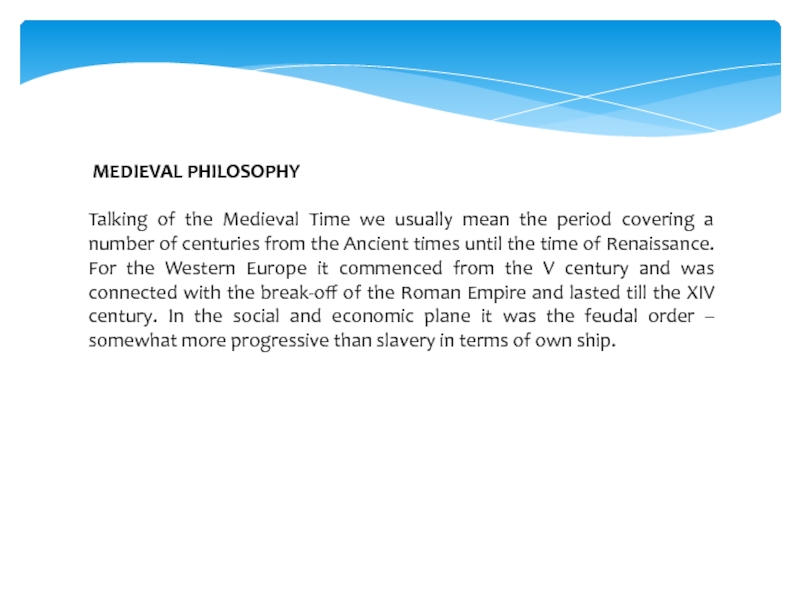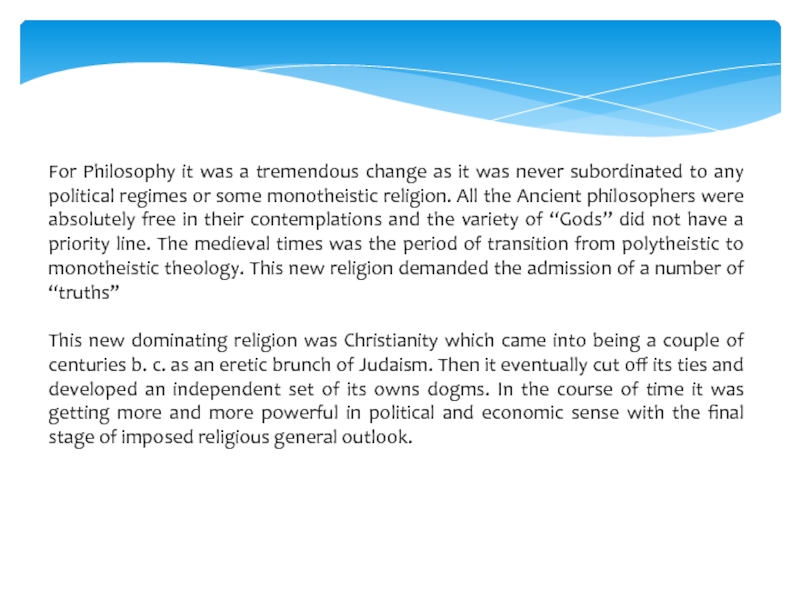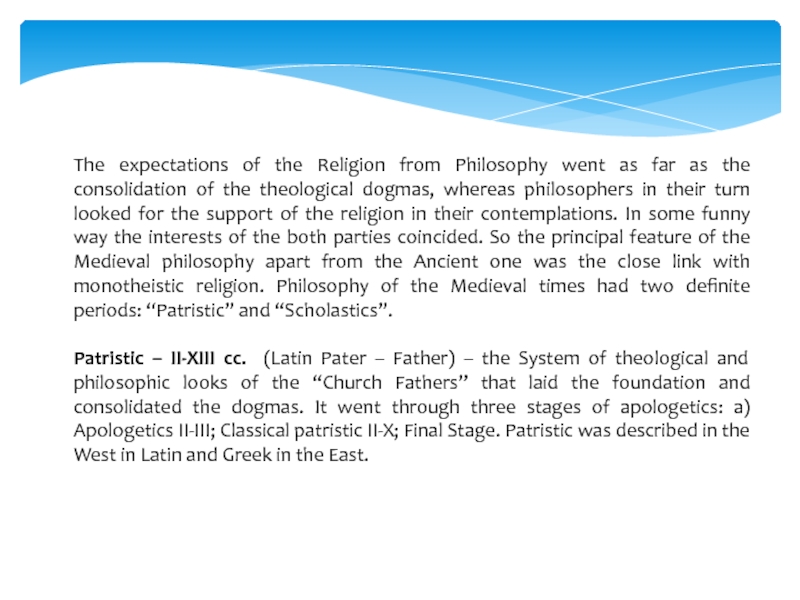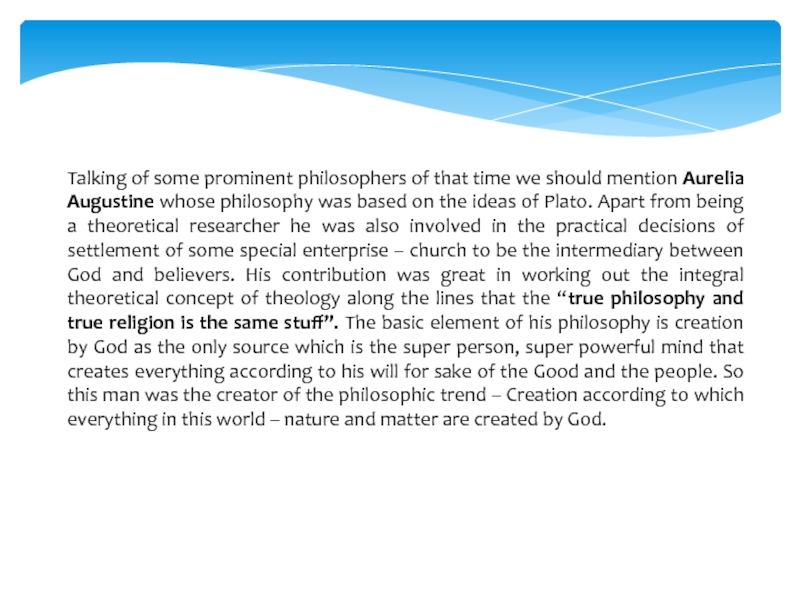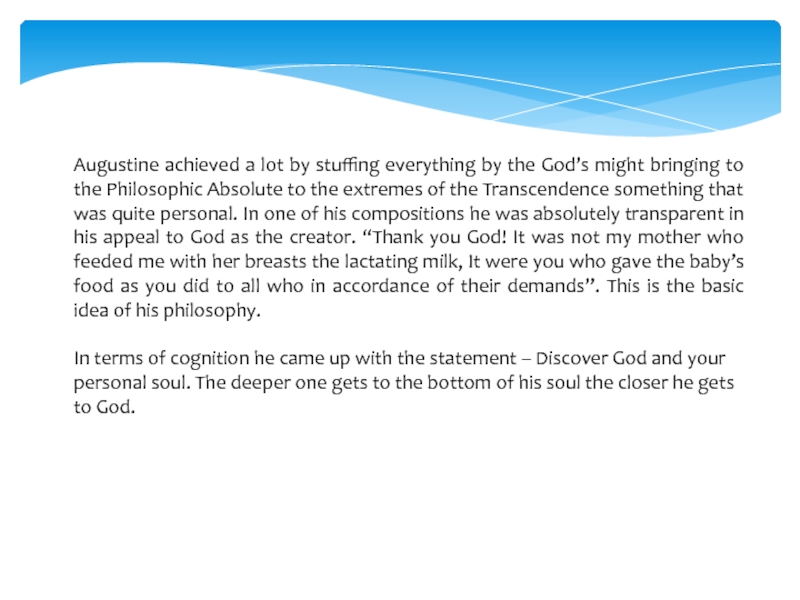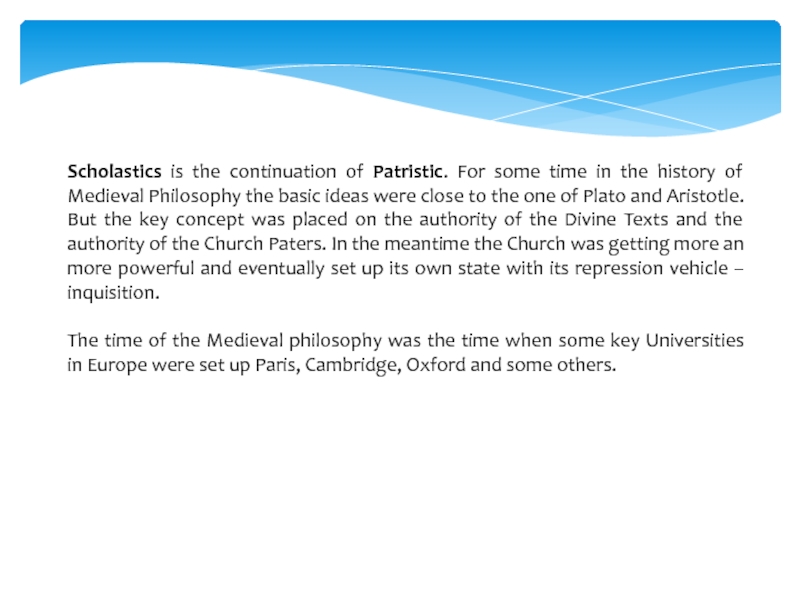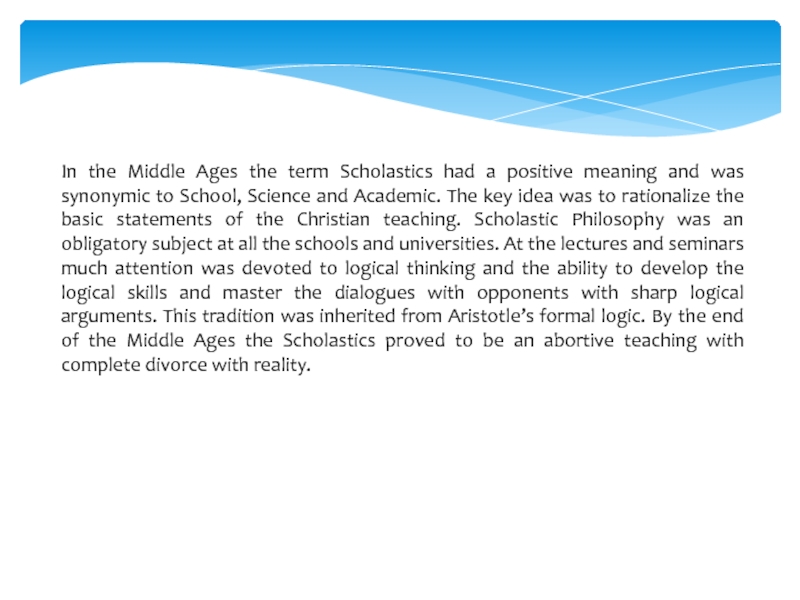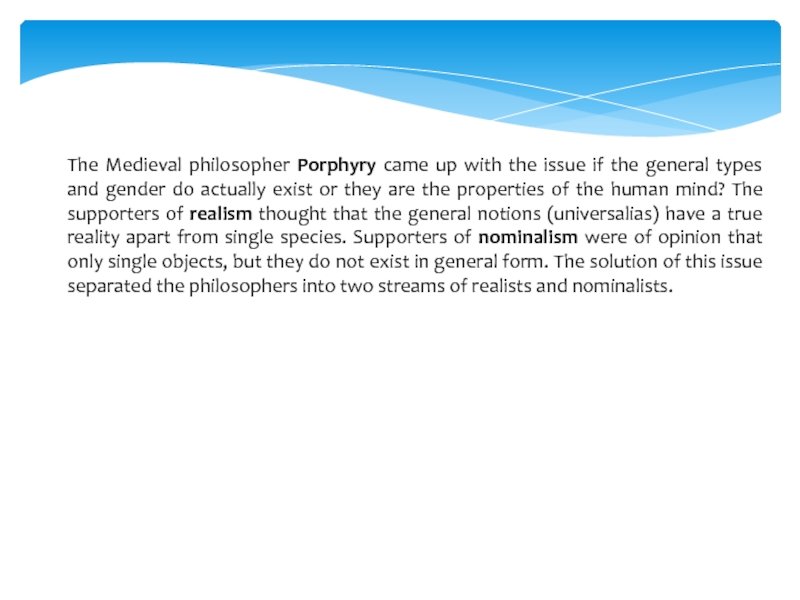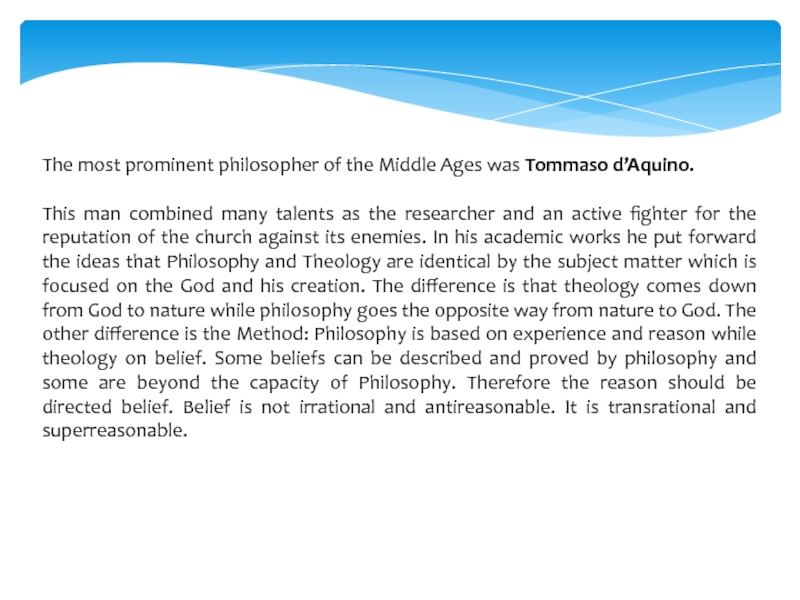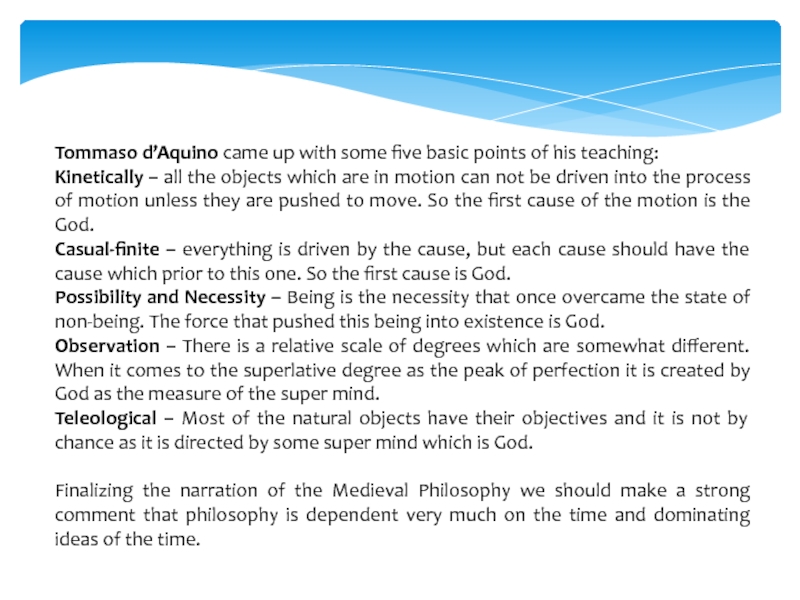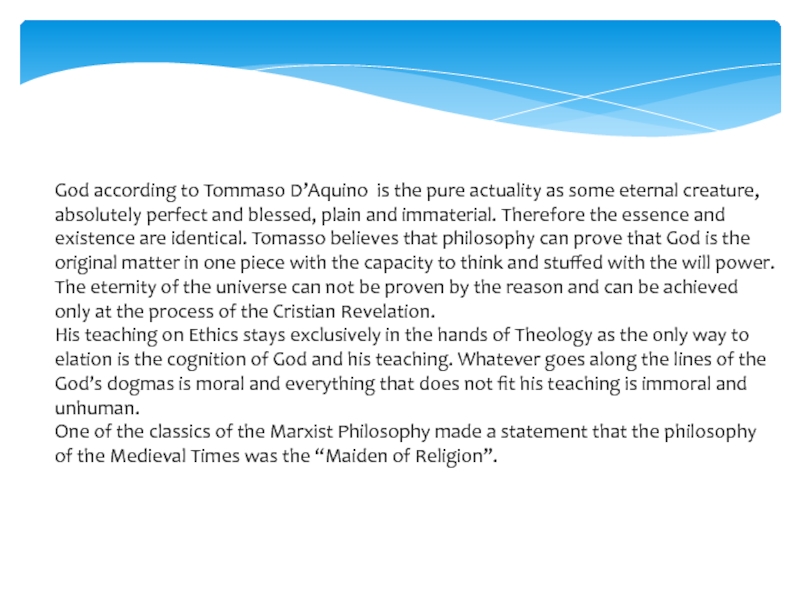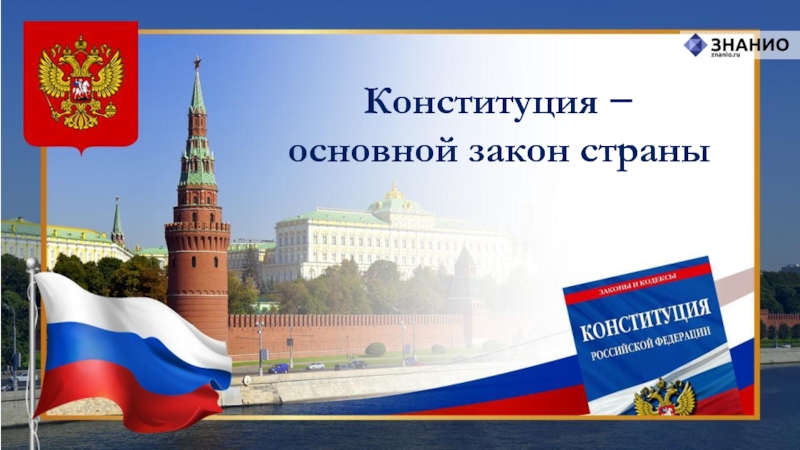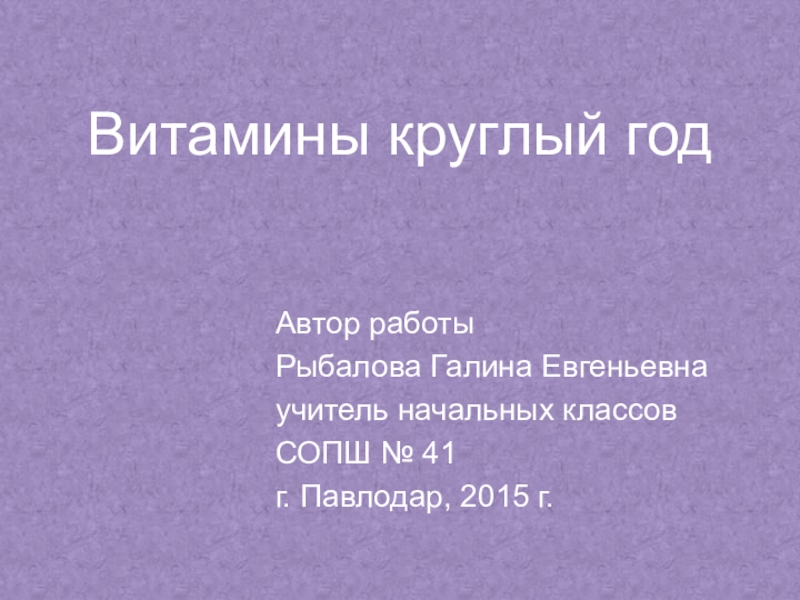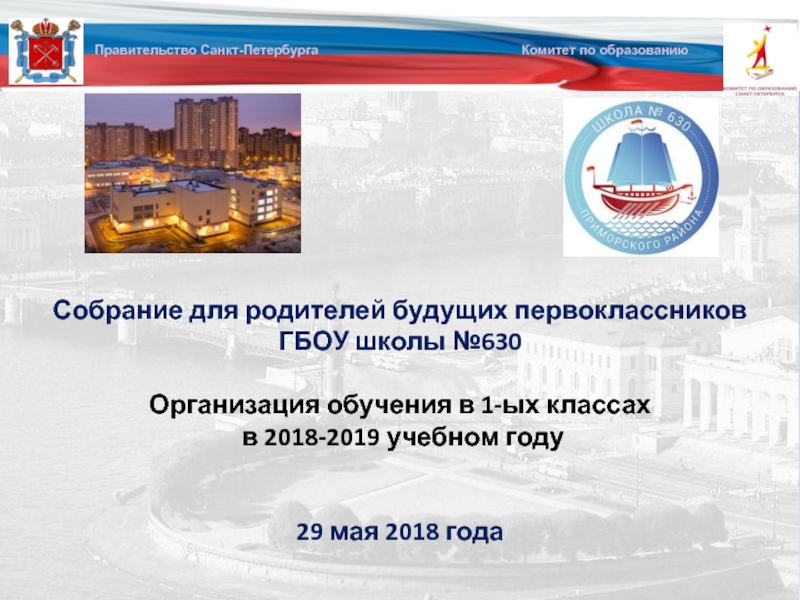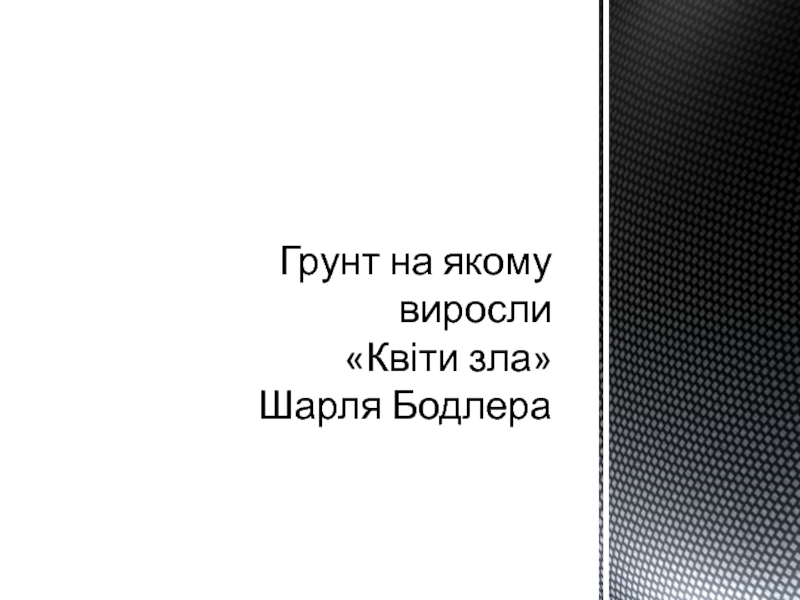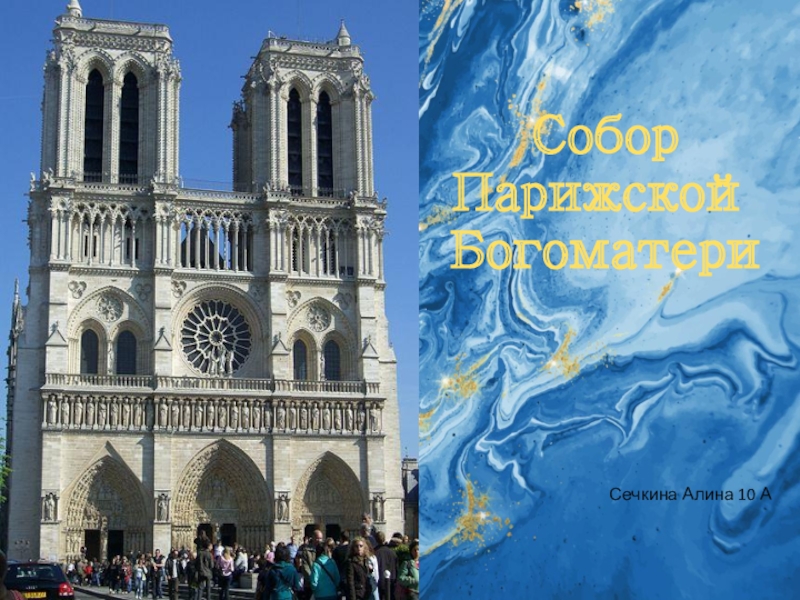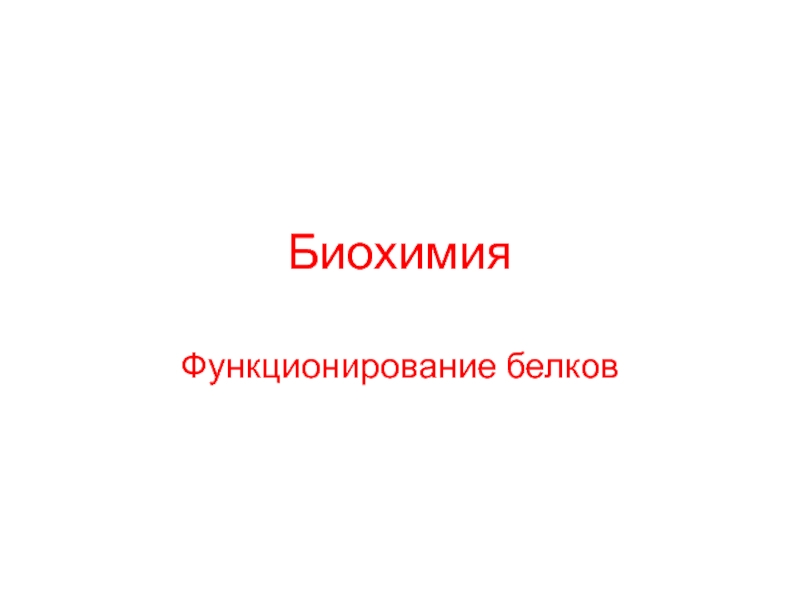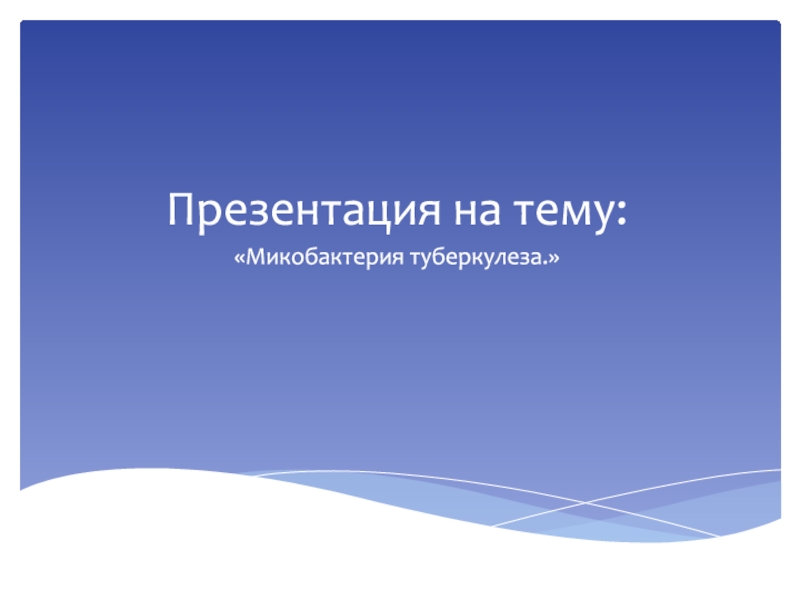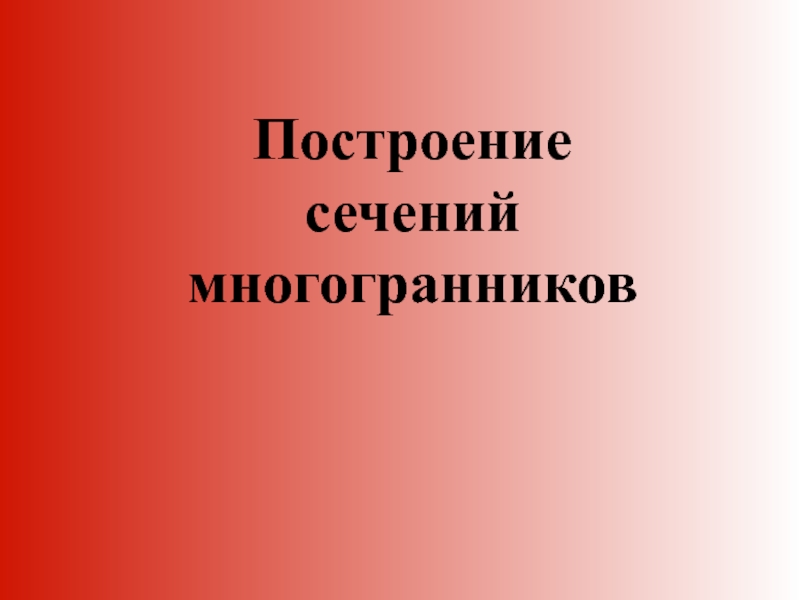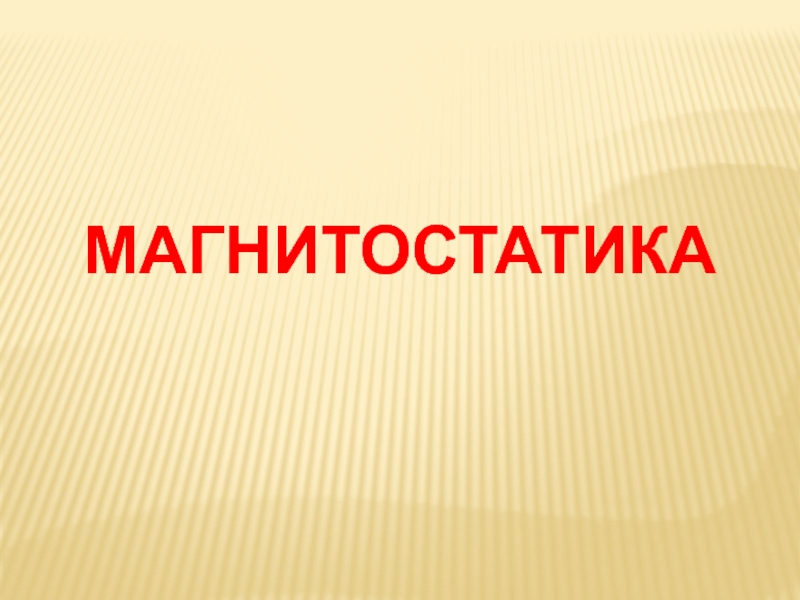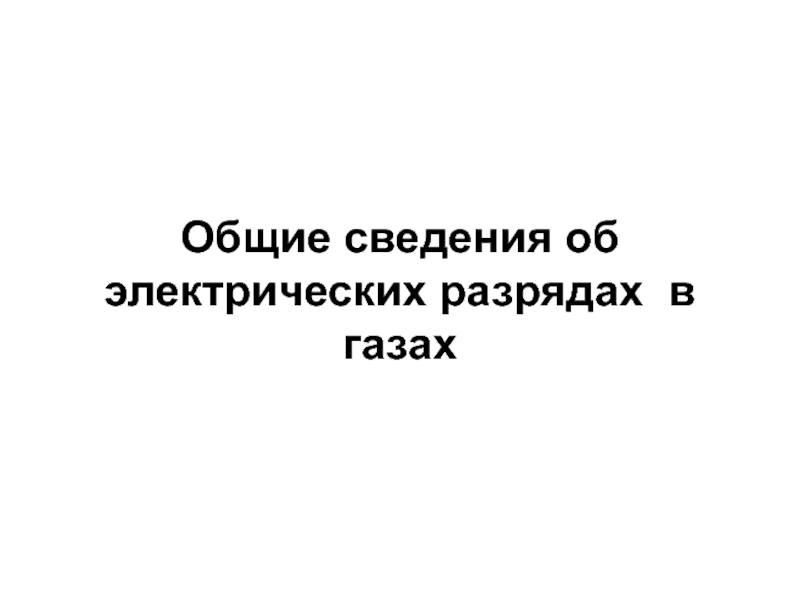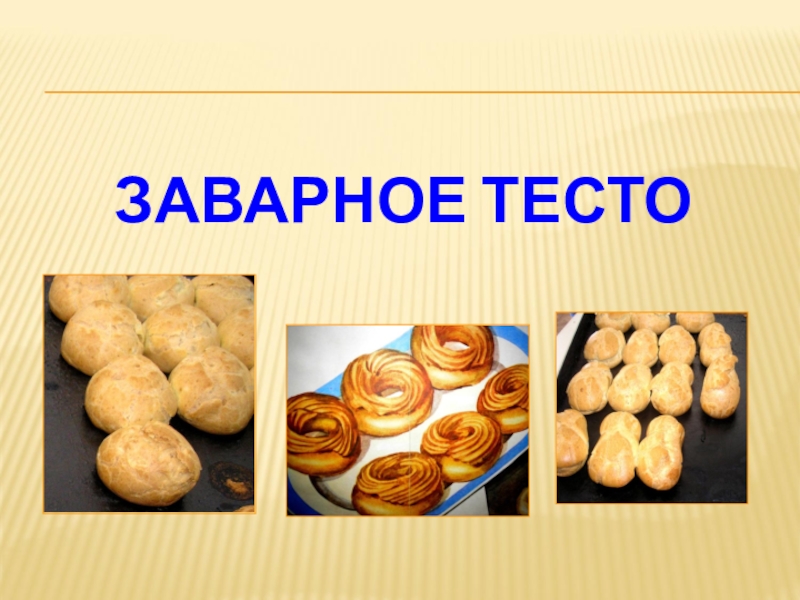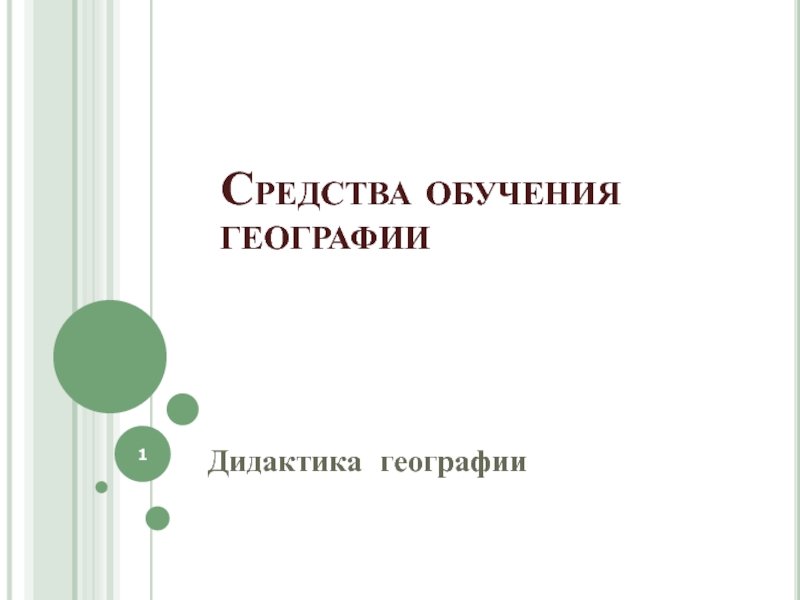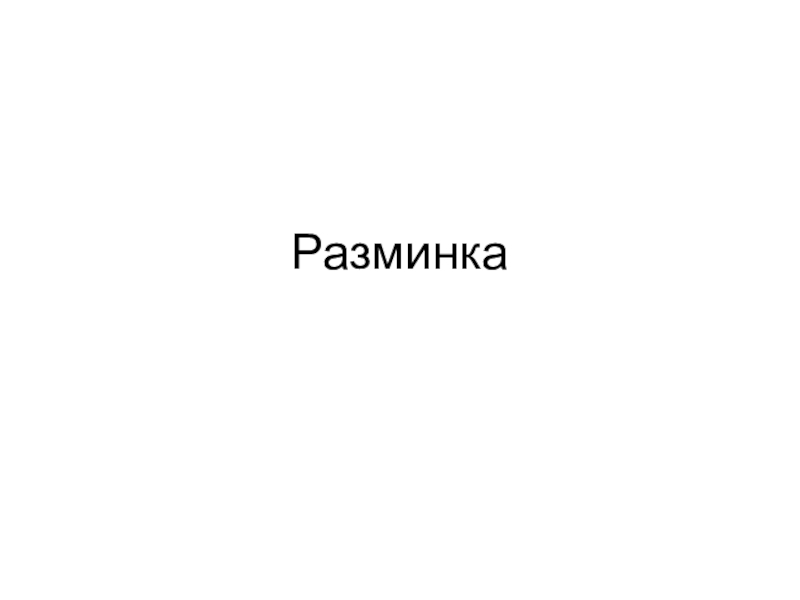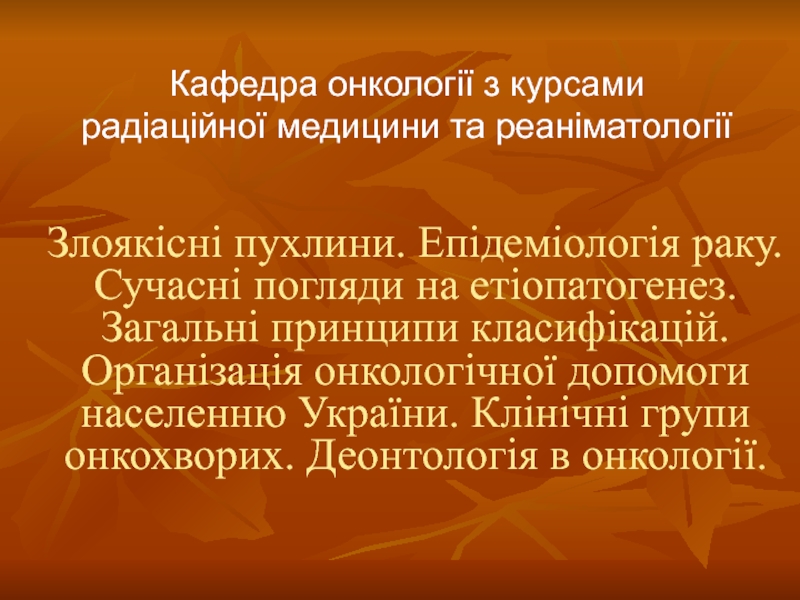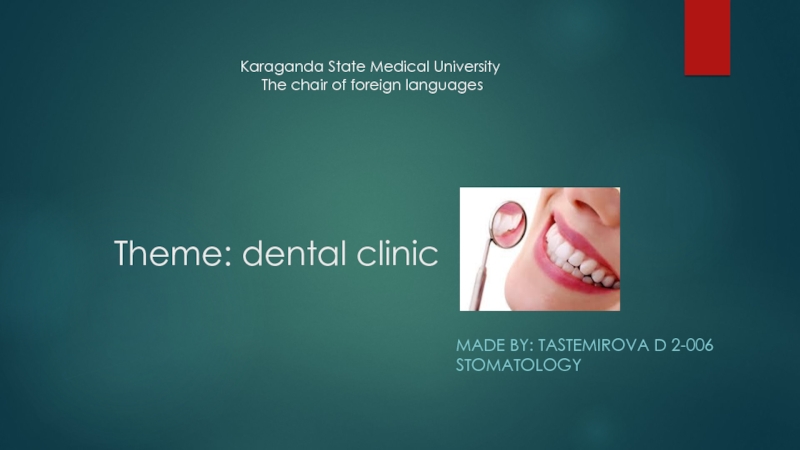Разделы презентаций
- Разное
- Английский язык
- Астрономия
- Алгебра
- Биология
- География
- Геометрия
- Детские презентации
- Информатика
- История
- Литература
- Математика
- Медицина
- Менеджмент
- Музыка
- МХК
- Немецкий язык
- ОБЖ
- Обществознание
- Окружающий мир
- Педагогика
- Русский язык
- Технология
- Физика
- Философия
- Химия
- Шаблоны, картинки для презентаций
- Экология
- Экономика
- Юриспруденция
MEDIEVAL PHILOSOPHY Talking of the Medieval Time we usually mean the period
Содержание
- 1. MEDIEVAL PHILOSOPHY Talking of the Medieval Time we usually mean the period
- 2. For Philosophy it was a tremendous change
- 3. The expectations of the Religion from Philosophy
- 4. Talking of some prominent philosophers of that
- 5. Augustine achieved a lot by stuffing everything
- 6. Scholastics is the continuation of Patristic. For
- 7. In the Middle Ages the term Scholastics
- 8. The Medieval philosopher Porphyry came up with
- 9. The most prominent philosopher of the Middle
- 10. Tommaso d’Aquino came up with some five
- 11. As for the relation of belief and
- 12. God according to Tommaso D’Aquino is the
- 13. Скачать презентанцию
For Philosophy it was a tremendous change as it was never subordinated to any political regimes or some monotheistic religion. All the Ancient philosophers were absolutely free in their contemplations and
Слайды и текст этой презентации
Слайд 2For Philosophy it was a tremendous change as it was
never subordinated to any political regimes or some monotheistic religion.
All the Ancient philosophers were absolutely free in their contemplations and the variety of “Gods” did not have a priority line. The medieval times was the period of transition from polytheistic to monotheistic theology. This new religion demanded the admission of a number of “truths”This new dominating religion was Christianity which came into being a couple of centuries b. c. as an eretic brunch of Judaism. Then it eventually cut off its ties and developed an independent set of its owns dogms. In the course of time it was getting more and more powerful in political and economic sense with the final stage of imposed religious general outlook.
Слайд 3The expectations of the Religion from Philosophy went as far
as the consolidation of the theological dogmas, whereas philosophers in
their turn looked for the support of the religion in their contemplations. In some funny way the interests of the both parties coincided. So the principal feature of the Medieval philosophy apart from the Ancient one was the close link with monotheistic religion. Philosophy of the Medieval times had two definite periods: “Patristic” and “Scholastics”.Patristic – II-XIII cc. (Latin Pater – Father) – the System of theological and philosophic looks of the “Church Fathers” that laid the foundation and consolidated the dogmas. It went through three stages of apologetics: a) Apologetics II-III; Classical patristic II-X; Final Stage. Patristic was described in the West in Latin and Greek in the East.
Слайд 4Talking of some prominent philosophers of that time we should
mention Aurelia Augustine whose philosophy was based on the ideas
of Plato. Apart from being a theoretical researcher he was also involved in the practical decisions of settlement of some special enterprise – church to be the intermediary between God and believers. His contribution was great in working out the integral theoretical concept of theology along the lines that the “true philosophy and true religion is the same stuff”. The basic element of his philosophy is creation by God as the only source which is the super person, super powerful mind that creates everything according to his will for sake of the Good and the people. So this man was the creator of the philosophic trend – Creation according to which everything in this world – nature and matter are created by God.Слайд 5Augustine achieved a lot by stuffing everything by the God’s
might bringing to the Philosophic Absolute to the extremes of
the Transcendence something that was quite personal. In one of his compositions he was absolutely transparent in his appeal to God as the creator. “Thank you God! It was not my mother who feeded me with her breasts the lactating milk, It were you who gave the baby’s food as you did to all who in accordance of their demands”. This is the basic idea of his philosophy.In terms of cognition he came up with the statement – Discover God and your personal soul. The deeper one gets to the bottom of his soul the closer he gets to God.
Слайд 6Scholastics is the continuation of Patristic. For some time in
the history of Medieval Philosophy the basic ideas were close
to the one of Plato and Aristotle. But the key concept was placed on the authority of the Divine Texts and the authority of the Church Paters. In the meantime the Church was getting more an more powerful and eventually set up its own state with its repression vehicle – inquisition.The time of the Medieval philosophy was the time when some key Universities in Europe were set up Paris, Cambridge, Oxford and some others.
Слайд 7In the Middle Ages the term Scholastics had a positive
meaning and was synonymic to School, Science and Academic. The
key idea was to rationalize the basic statements of the Christian teaching. Scholastic Philosophy was an obligatory subject at all the schools and universities. At the lectures and seminars much attention was devoted to logical thinking and the ability to develop the logical skills and master the dialogues with opponents with sharp logical arguments. This tradition was inherited from Aristotle’s formal logic. By the end of the Middle Ages the Scholastics proved to be an abortive teaching with complete divorce with reality.Слайд 8The Medieval philosopher Porphyry came up with the issue if
the general types and gender do actually exist or they
are the properties of the human mind? The supporters of realism thought that the general notions (universalias) have a true reality apart from single species. Supporters of nominalism were of opinion that only single objects, but they do not exist in general form. The solution of this issue separated the philosophers into two streams of realists and nominalists.Слайд 9The most prominent philosopher of the Middle Ages was Tommaso
d’Aquino.
This man combined many talents as the researcher and an
active fighter for the reputation of the church against its enemies. In his academic works he put forward the ideas that Philosophy and Theology are identical by the subject matter which is focused on the God and his creation. The difference is that theology comes down from God to nature while philosophy goes the opposite way from nature to God. The other difference is the Method: Philosophy is based on experience and reason while theology on belief. Some beliefs can be described and proved by philosophy and some are beyond the capacity of Philosophy. Therefore the reason should be directed belief. Belief is not irrational and antireasonable. It is transrational and superreasonable. Слайд 10Tommaso d’Aquino came up with some five basic points of
his teaching:
Kinetically – all the objects which are in motion
can not be driven into the process of motion unless they are pushed to move. So the first cause of the motion is the God.Casual-finite – everything is driven by the cause, but each cause should have the cause which prior to this one. So the first cause is God.
Possibility and Necessity – Being is the necessity that once overcame the state of non-being. The force that pushed this being into existence is God.
Observation – There is a relative scale of degrees which are somewhat different. When it comes to the superlative degree as the peak of perfection it is created by God as the measure of the super mind.
Teleological – Most of the natural objects have their objectives and it is not by chance as it is directed by some super mind which is God.
Finalizing the narration of the Medieval Philosophy we should make a strong comment that philosophy is dependent very much on the time and dominating ideas of the time.
Слайд 11As for the relation of belief and reason Tommaso d’Aquino
makes a distinction between reasonable and super reasonable truths. The
reasonable truths can be proven by the means of the human mind, while the super reasonable ones are far beyond the capacity of the human cognition and can be achieved exclusively at the process of Revelation. The difference does not lie in the area of the truths. It tells of the relation of the reason towards the truths. Therefore these truths in spite of the obvious differences do not contradict each other. So, belief and reason are the notions with the difference in its potential as the reason can not fix and prove super reasonable truths of Christianity. It puts Philosophy into the position of some auxiliary vehicle of Theology.Слайд 12God according to Tommaso D’Aquino is the pure actuality as
some eternal creature, absolutely perfect and blessed, plain and immaterial.
Therefore the essence and existence are identical. Tomasso believes that philosophy can prove that God is the original matter in one piece with the capacity to think and stuffed with the will power.The eternity of the universe can not be proven by the reason and can be achieved only at the process of the Cristian Revelation.
His teaching on Ethics stays exclusively in the hands of Theology as the only way to elation is the cognition of God and his teaching. Whatever goes along the lines of the God’s dogmas is moral and everything that does not fit his teaching is immoral and unhuman.
One of the classics of the Marxist Philosophy made a statement that the philosophy of the Medieval Times was the “Maiden of Religion”.
